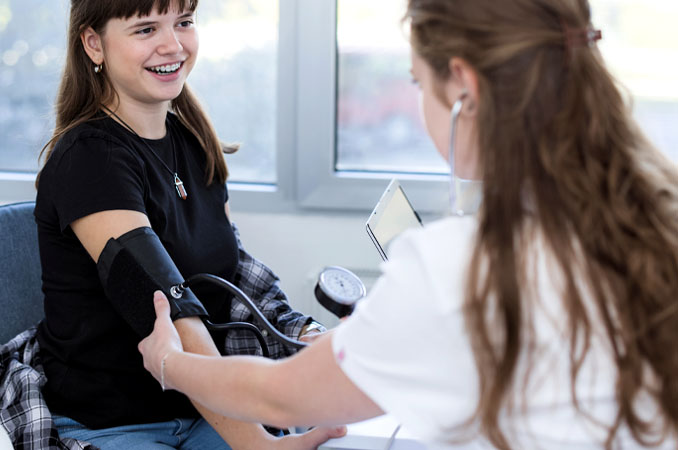Shine the Light on Skin Cancer Risks
Are you at risk?
Everyone should take precautions to avoid excess sun exposure, but you may be more at risk if you have:
• Fair skin
• Blue, green or hazel eyes
• Light-colored hair
• Tendency to burn rather than suntan
• History of severe sunburns
• Many moles
• Freckles
• A family history of skin cancer
Summertime activities are in full swing! From the beach to the pool and everywhere in between, it's important to take steps to protect your skin this summer and throughout the year. Skin cancer is becoming increasingly more common, but you can easily take steps to protect the skin you're in.
Skin cancer is most often caused by sun exposure and ultraviolet radiation, which include UVA and UVB rays. UVA rays are linked to aging, and believed to contribute to some skin cancers. UVB rays primarily cause sunburns and are thought be the leading contributor to most skin cancers.
The two main types of skin cancers are basal and squamous cell skin cancers and melanoma. Basal and squamous cell are the most common, and more likely to develop on parts of the body most exposed to the sun, like the head and neck. These rarely spread to other body parts and are less likely to be fatal. Melanomas are less common but are much more serious. It's important to check your skin regularly since melanoma is most curable in its early stages.
Here are the steps you need to take to protect your skin and help prevent skin cancer:
- Wear broad-spectrum sunscreen throughout the year. Daily exposure adds up over time and can increase your risk of developing skin cancer. This includes day-to-day activities like shopping, walking, gardening and anything that takes you outdoors.
- Limit direct exposure to the sun during the peak of the day (10 a.m. - 4 p.m.).
- If you work outside, wear long sleeves and pants.
- Wear a wide-brimmed hat and sunglasses.
- Avoid tanning beds and sun lamps.
- Check your skin regularly for any changes in appearance. Learn how to spot possible changes from the Mayo Clinic.
- Have a regular skin check by a medical professional especially if you begin to notice any changes.
The American Academy of Dermatology is working to promote skin cancer awareness through its SPOT Skin Cancer Initiative. Click here to learn more. Web MD also has a section of its website dedicated to skin cancer awareness and education.




 Women's Health
Women's Health Eat Healthy
Eat Healthy Exercise
Exercise Health & Wellness Articles
Health & Wellness Articles